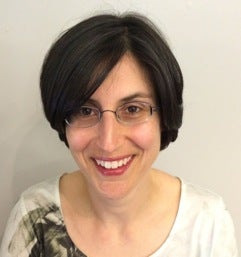Jennifer A. Rea was one of two scholars selected as a 2014-15 Le Guin Fellow. An associate professor of classics at the University of Florida in Gainesville, she made a research trip to Eugene in October 2015. Professor Rea’s first book, Legendary Rome (2007), explored the Roman poets’ reinvention of Rome’s legendary past for post-civil war Augustan Rome. Her latest project, Perpetua’s Journey, for Oxford University Press, presents a graphic history of Vibia Perpetua’s prison diary. She visited Knight Library to complete work on another current book project, Empire without End: Science Fiction, Fantasy and Vergil, which explores why Vergil’s violent foundation story remains relevant in modern science fiction and fantasy, and especially within the novel Lavinia, by Ursula K. Le Guin. Professor Rea said about her visit to UO, “The Ursula K. Le Guin fellowship allowed me to do in-depth research in the archives that would not have been possible otherwise and I am extremely grateful to have had this opportunity.”
In the final report she submitted regarding her visit to the archives, Rea noted:
“I was delighted to find, among the Ursula K. Le Guin papers, the notebook that she used to take notes on Lavinia. In particular, I found her ideas about the lives of the proto-Romans, what their landscape looked like, how they worshiped, the Roman sense of pietas, and her consideration of tragic elements within the Aeneid to be critical to my scholarly analysis of the Aeneid’s ending. When studying the ways in which Lavinia can inform our understanding of Vergil’s epic, the Aeneid, Le Guin’s preliminary writings on Lavinia and her research on the ancient Romans’ religious beliefs can help us to extend the scholarly dialogue. Le Guin’s Lavinia does not ask us to search fruitlessly for a ‘winner-hero’ and a ‘loser-anti-hero’ at the end of the epic battle between Turnus and Aeneas, but to see the tragedy that war brings to human lives. The character Lavinia confronts her audience with a question also found in the Aeneid, ‘Can violence and/or war ever create a better future for humankind?’ To see the development of those ideas before they were brought to fruition in her fantasy novel was an extraordinary experience and one that will inform my future writings on Le Guin’s work.”


